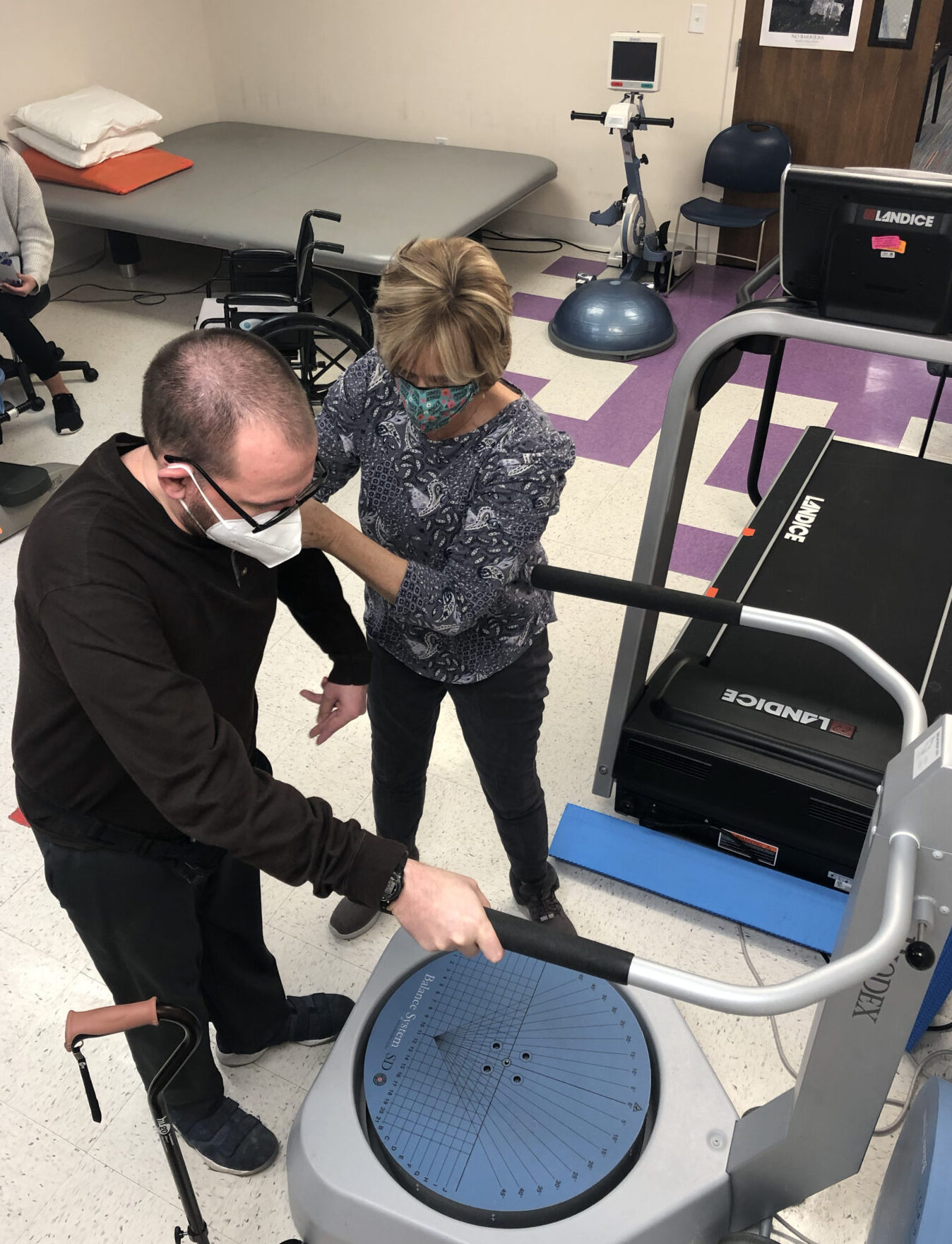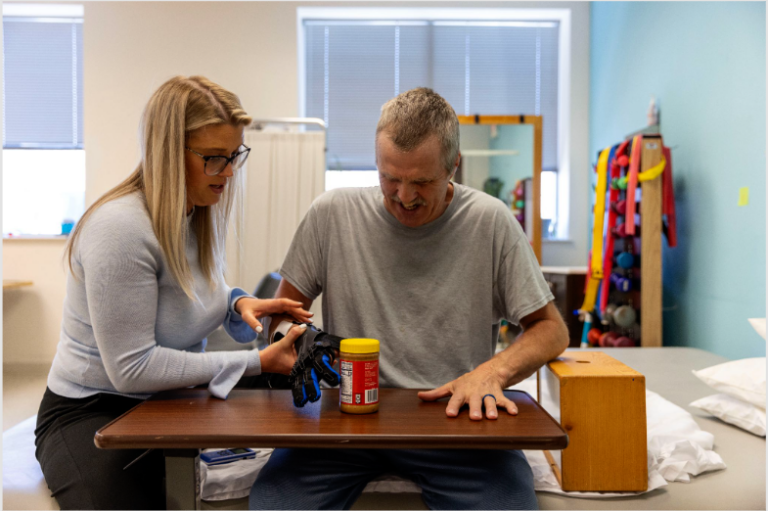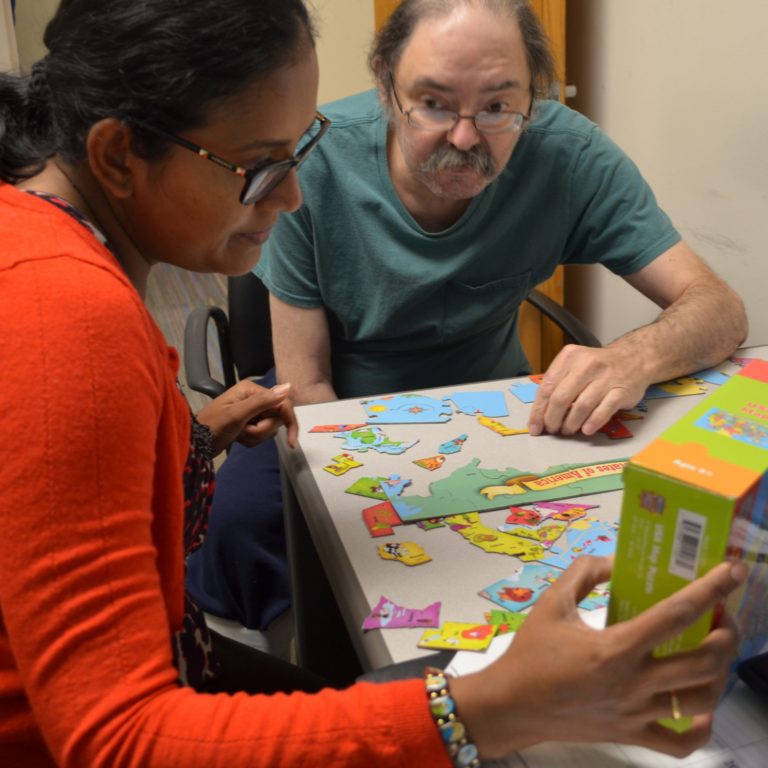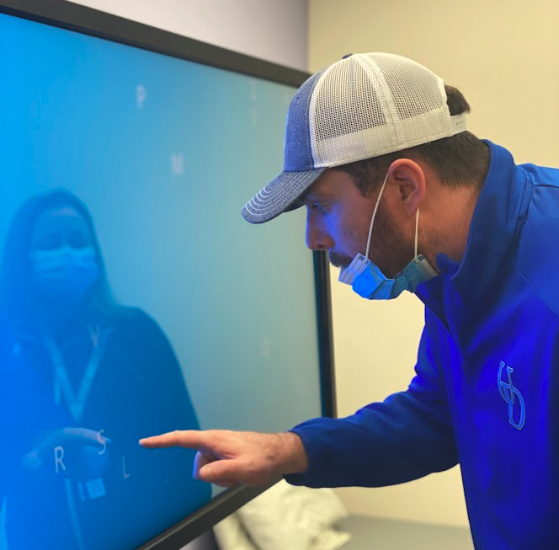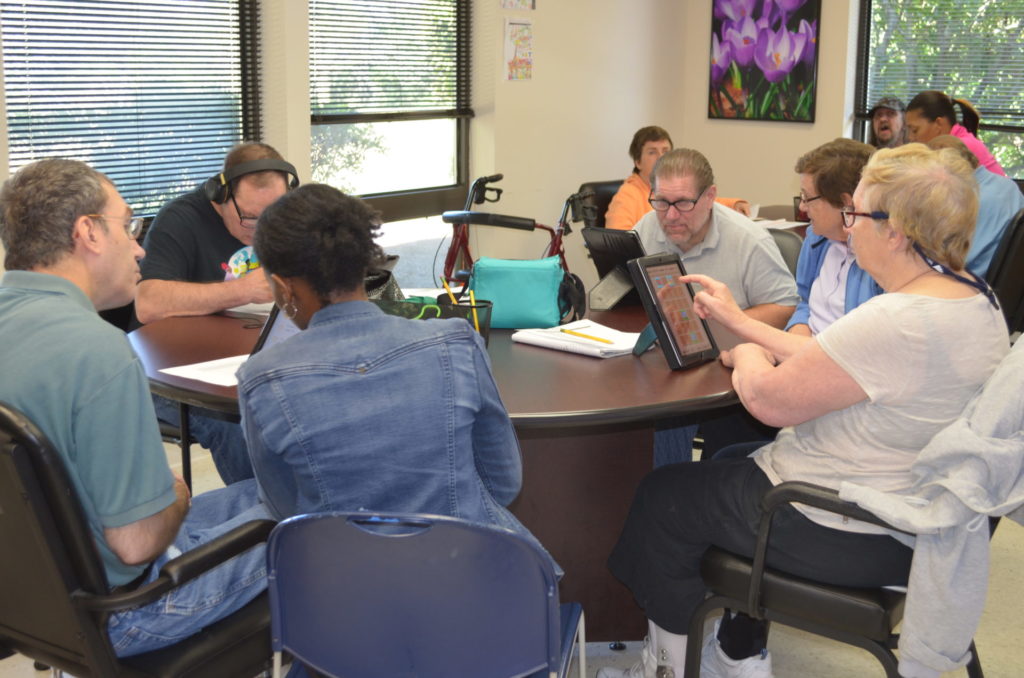Vision Therapy
Home » Outpatient Therapies » Vision Therapy
What is Vision Therapy?
Vision therapy is an individualized program of various procedures for the eyes, addressing eye teaming, eye movement, visual accommodation, and perceptual integration; specifically to support the connection of the eyes to the brain.
What Does Vision Therapy Do?
- Help patients develop or improve fundamental visual skills and abilities
- Improve visual comfort, ease, and efficiency
- Change how a patient processes or interprets visual information
- Improve deficits with balance and mobility
Causes and Symptoms
Can a brain injury cause vision issues?
Many of the diagnoses below can be accompanied by vision impairments:
- Mild-severe traumatic brain injury (including concussion)
- Stroke
- Tumor resections
- Brain infections or inflammation
- Anoxia
- Anything to cause a disruption to the normal brain function, resulting in the following symptoms
Common vision problems and symptoms following a brain injury
- Headache
- Photosensitivity
- Dizziness
- Diplopia
- Blurry vision
- Closing of one eye
- Eyes feeling tired
- Uses their finger as a line guide when reading
- Difficulty with reading
- Unable to read for sustained periods of time
- Omitting words
- Poor comprehension
- Moving head excessively when reading
When to Seek Vision Therapy
Can a brain injury cause vision issues?
After completing a thorough assessment of the eye functions, and in collaboration with a Neuro Optometrist, vision therapists work to restore the skills required for the eyes to perform necessary movements and teaming abilities, in order to comfortably and safely engage in everyday life. Remedial vision training, led by an Occupational Therapist, integrates the various domains of function and can assist with successful return to work, school, safe mobility, driving, and community engagement.
Do you need Vision Therapy?





